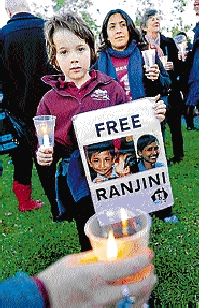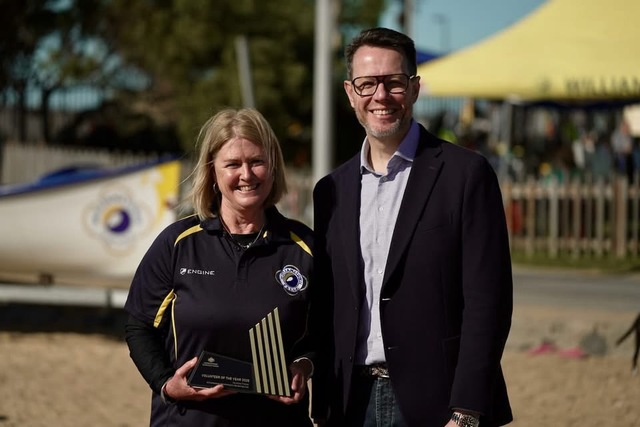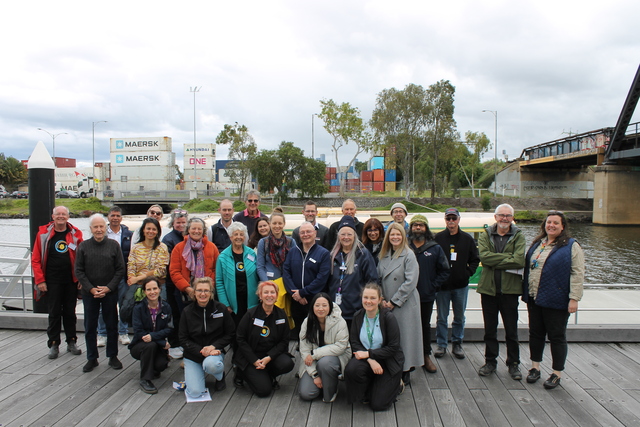ALMOST 200 people turned out for a candlelight vigil in Maribyrnong last Wednesday night to protest against the indefinite detention of Tamil refugee Ranjini, from Sri Lanka.
The pregnant mother of two, who has been living in Melbourne, was called in to meet Immigration Departmental officials early last month.
She was whisked away without warning and locked away with her sons in the Villawood Detention Centre in Sydney.
She has been deemed a security risk by ASIO, but the intelligence organisation refuses to outline the details of its adverse assessment.
Click on the image below for our gallery of the vigil.
Ranjini, 33, is one of at least 51 refugees in Australia facing indefinite detention without any information about the case against them. Most are Tamils who fled the decades-long conflict in Sri Lanka.
Joining the vigil in front of the Maribyrnong office of Attorney-General Nicola Roxon, refugee rights campaigner Aran Myleaganam said he knew of six refugees in Broadmeadows and three in Maribyrnong who were affected by ASIO’s adverse assessment.
“Ranjini has seen so many deaths and the suffering of the Tamils. She has fled a horrible war-zone to come to Australia,” he said.
“She has proven she is not a security threat by being in the community for more than a year yet the Immigration Department has made that decision to lock her away.”
He called on the government to free Ranjini and the other Tamils who are fleeing Sri Lanka. “Find out the real reason they are leaving and when you find the truth, cease your relationship with the Sri Lankan government.”
Victoria University Footscray TAFE teacher Margarita Windisch said Ranjini’s case highlighted the injustice of Australia’s immigration and detention policies.
“It is absolutely unfathomable why a country that calls itself democratic would resort to such authoritarian measures,” she said.
“Australia is developing a notorious reputation overseas as a country that treats its most vulnerable people, such as refugees and asylum seekers, with utter contempt, simply denying them basic human rights.”
Ms Roxon said cases like Ranjini’s were complex, but the government “cannot and will not compromise on matters of national security”.
Australia’s top law-maker would not comment on specific cases but said appropriate arrangements were in place for the care and support of people detained due to an adverse security assessment.
“It is important to note here that people who have received adverse security assessments cannot be granted a permanent visa, as they have been found by ASIO to be a risk to the Australian community.”
The policy of indefinite detention without review was criticised at Labor’s national conference in December.
In March, a parliamentary committee recommended the government find a way to review negative assessments and allow appeals.








